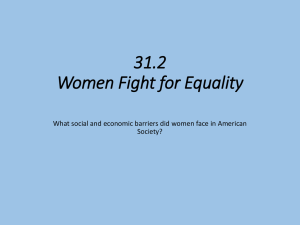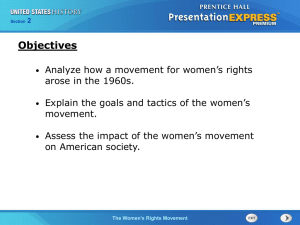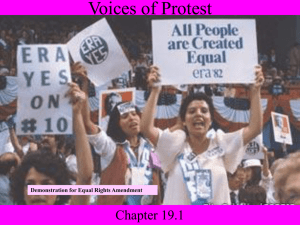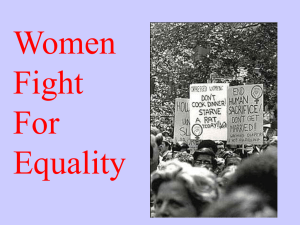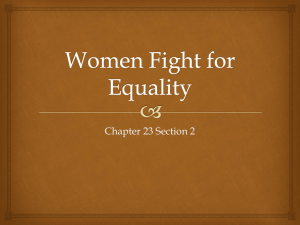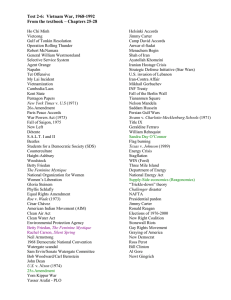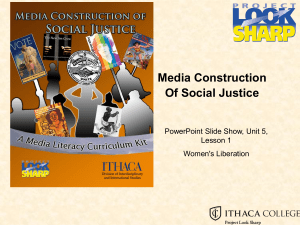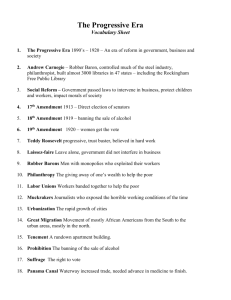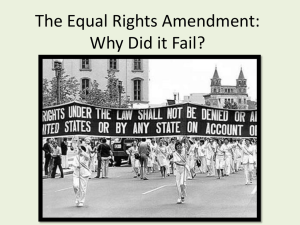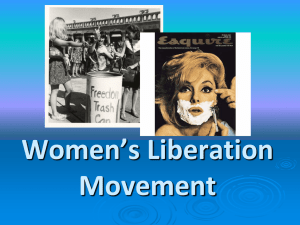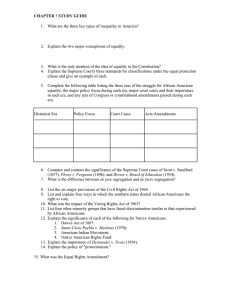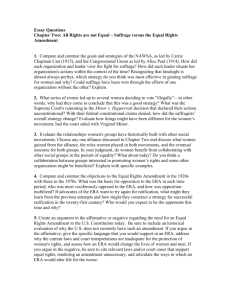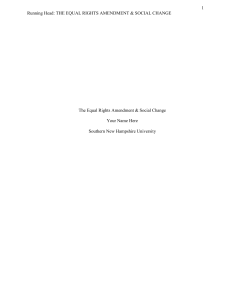Women Fight for Equality 31.2
advertisement
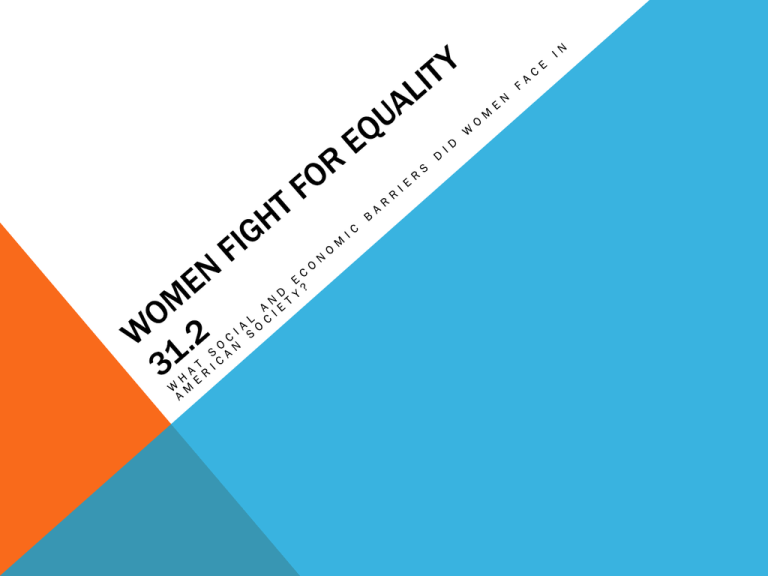
KEY TERMS Feminism Betty Friedan National Organization for Women (NOW) Gloria Steinem Equal Rights Amendment Phyllis Schlafly KEY DATES 1963- Betty Friedan publishes The Feminine Mystique 1964- Civil Rights Act 1966- National Organization for Women (NOW) formed 1971- Gloria Steinem founds National Women’s Political Caucus 1972- Higher Education Act- Title IX 1972- Equal Rights Amendment (ERA) 1973- Roe v. Wade legalizes abortion 1982- ERA officially fails to be ratified WOMEN IN THE WORKFORCE 1950- only 33% women had ever worked for wages 1960- 40% of women worked outside the home Made up 1/3 of nations workforce Many jobs were considered “Men’s Work” and women were barred from those careers Mainly worked as teachers, nurses, secretaries, retail sales, and social work What do these jobs have in common? SOCIAL ACTIVISM Feminism Define: The belief that women should have economic, political, and social equality with men Underlying belief behind women’s movement Inspired by Civil Rights and Anti-War Movements Faced sexism and discrimination in those movements A MOVEMENT EMERGES 1963- Betty Friedan Author of The Feminine Mystique Argued against the view that women are meant for house work and child bearing Reaction to 1950s stereotypical Housewife and social conformity Advocated for opportunity for Women in Careers outside the home SUCCESSES AND FAILURES 1966- National Organization for Women (NOW) is formed “…To confront with concrete action the conditions which now prevent women from enjoying the equality of opportunity…which is their right as individual Americans and Human Beings.” NOW Statement of Purpose New York Radical Women protested the Miss America Pageant Gloria Steinem helped found the Women’s Political Caucus to help women get elected to government positions 1972 she founded Ms. Magazine 1972-Higher Education Act Title IX- helped gain more opportunity for women to go to college 1973- Roe v. Wade Made abortions legal in the United States Debate still ongoing today EQUAL RIGHTS AMENDMENT 1972- Congress Passes the Equal Rights Amendment (ERA) Needed 38 of 50 states to ratify the constitution “Equality of rights under the law shall not be denied or abridged by the United States or by any state on account of sex” Opposition from conservatives groups stalled the ERA’s ratification Phyllis Schlafly – Opponent of ERA Believed ERA was the work of radical Feminists who, “…hate men, hate marriage, and hate children.” “Feminism is doomed to failure because it is based on an attempt to repeal and restructure human nature” Section 1. Equality of rights under the law shall not be denied or abridged by the United States or by any State on account of sex. Section 2. The Congress shall have the power to enforce, by appropriate legislation, the provisions of this article. Section 3. This amendment shall take effect two years after the date of ratification Reflection Question: Why do you believe people would oppose this amendment? REFLECTION QUESTIONS How did the values and conformity of the 1950s affect the women’s movement in the 1960s and 1970s. Think about both the supporters and opponents of the women’s movement? How do you think most minority women reacted to the women’s movement?
